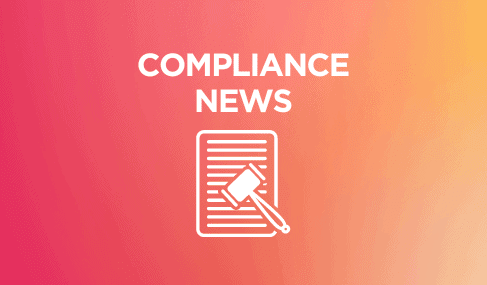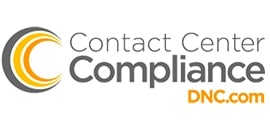
We aim to highlight the importance of due diligence in lead campaigns and to keep our customers and industry associates up-to-date with the compliance news reported for our industry. This article is reprinted here for our readers, courtesy of our partner Contact Center Compliance.

Understanding Wisconsin Telemarketing Laws
Telemarketing has become an integral part of the business landscape, allowing companies to reach out to potential customers directly. However, with this convenience comes the need for regulations to protect consumers from intrusive practices. In the state of Wisconsin, telemarketing restrictions are in place to ensure ethical and lawful business practices. This comprehensive guide explores the telemarketing landscape in Wisconsin, covering the relevant laws, restrictions, and key considerations that businesses must adhere to.
Wisconsin Telemarketing Sales Rule
The cornerstone of telemarketing regulations in Wisconsin is the Telemarketing Sales Rule, which outlines specific requirements for telemarketers operating in the state. This rule is designed to protect consumers from deceptive and unfair practices.
Registration and Bonding
Telemarketers in Wisconsin may be required to register with the Department of Financial Institutions. This process often involves providing detailed information about the business and its telemarketing activities. Additionally, bonding requirements may be in place to ensure financial responsibility.
Caller Identification and Abandoned Calls
Wisconsin law mandates that telemarketers display accurate caller identification information, including the name and phone number of the business. Moreover, restrictions on abandoned calls exist to prevent excessive hang-ups and ensure that consumers have the opportunity to connect with a live representative.
Time-of-Day Restrictions
To minimize disturbances, telemarketing calls in Wisconsin are subject to time-of-day restrictions. These limitations aim to prevent calls during inconvenient hours and protect consumers’ privacy.
Do-Not-Call List
Wisconsin maintains a Do-Not-Call List that consumers can join to avoid unsolicited telemarketing calls. Telemarketers are obligated to regularly check and comply with this list to avoid contacting individuals who have opted out.
Prohibited Practices
The Telemarketing Sales Rule outlines specific practices that are prohibited in Wisconsin. These include misrepresentations, unauthorized charges, and other deceptive tactics that may harm consumers.
Key Considerations for Telemarketers
Compliance Challenges
Telemarketers operating in Wisconsin must navigate a complex regulatory landscape. Compliance challenges may arise due to evolving laws, and businesses must stay informed to ensure adherence to the latest regulations.
Recordkeeping Requirements
Wisconsin’s telemarketing laws often come with stringent recordkeeping requirements. Telemarketers must maintain detailed records of transactions, consumer interactions, and other relevant information to demonstrate compliance in the event of an audit or investigation.
Training and Education
Properly training telemarketing staff is crucial for compliance. Businesses should invest in comprehensive training programs that cover relevant laws, ethical practices, and customer communication to minimize the risk of violations.
Monitoring and Auditing
Regular monitoring and auditing of telemarketing practices can help businesses identify and rectify potential compliance issues proactively. This includes internal reviews and, if necessary, engaging external auditors to ensure thorough assessments.
Enforcement and Penalties
Government Agencies
The enforcement of telemarketing restrictions in Wisconsin falls under the purview of various government agencies, including the Department of Financial Institutions. These agencies actively monitor and investigate telemarketing activities to ensure compliance.
Civil and Criminal Penalties
Violations of telemarketing laws in Wisconsin can result in civil and criminal penalties. Civil penalties may include fines, injunctions, and restitution to affected consumers. Criminal penalties could involve fines and even imprisonment for serious offenses.
Consumer Remedies
Wisconsin’s legal framework provides remedies for consumers who have been adversely affected by telemarketing violations. This may include the ability to pursue legal action against non-compliant telemarketers.
Expanding Further on Wisconsin Telemarketing Regulations
Emerging Trends and Technologies
The dynamic nature of technology continually shapes the telemarketing landscape. As new communication channels and technologies emerge, Wisconsin’s regulatory framework may evolve to address these changes. Telemarketers must stay vigilant, adapting their strategies to comply with regulations that may be updated to encompass emerging trends such as text message marketing and voice broadcasting.
Consumer Education Initiatives
Beyond legal obligations, telemarketers in Wisconsin can benefit from actively engaging in consumer education initiatives. By providing clear information about products and services, respecting consumer privacy preferences, and explaining opt-out mechanisms, businesses can build positive relationships with their audience and reduce the likelihood of regulatory issues.
Industry Collaboration
Collaboration within the telemarketing industry is essential for establishing best practices and fostering a culture of compliance. Industry associations and forums can serve as valuable platforms for sharing insights, addressing common challenges, and working collectively to maintain high standards of ethical conduct.
Global Perspectives on Telemarketing Ethics
Considering global perspectives on telemarketing ethics can offer additional insights for businesses operating in Wisconsin. Understanding best practices from international contexts can contribute to the development of more robust and consumer-friendly telemarketing strategies.
By embracing these additional considerations, telemarketers in Wisconsin can position themselves not only as compliant entities within the local regulatory framework but also as ethical participants in a broader global marketplace. This proactive approach not only mitigates legal risks but also enhances the industry’s reputation, fostering a positive and mutually beneficial relationship between businesses and consumers.
In conclusion, navigating the telemarketing landscape in Wisconsin requires a thorough understanding of the applicable laws and regulations. Businesses must prioritize compliance to protect both their interests and the rights of consumers. This comprehensive guide has provided insights into the key aspects of telemarketing restrictions in Wisconsin, covering legal requirements, compliance challenges, and enforcement measures. By adhering to these guidelines, telemarketers can build trust with consumers, foster ethical business practices, and contribute to a healthy and regulated marketplace. Staying informed and proactive is essential in an ever-changing regulatory environment, ensuring that businesses can thrive while respecting the rights and preferences of Wisconsin residents.
Get a recap of the latest contact center compliance news delivered monthly to your inbox. Subscribe here>
DISCLAIMER: The information on this page and related links is provided for general education purposes only and is not legal advice. Convoso does not guarantee the accuracy or appropriateness of this information to your situation. You are solely responsible for using Convoso’s services in a legally compliant way and should consult your legal counsel for compliance advice. Any quotes are solely the views of the quoted person and do not necessarily reflect the views or opinions of Convoso.
